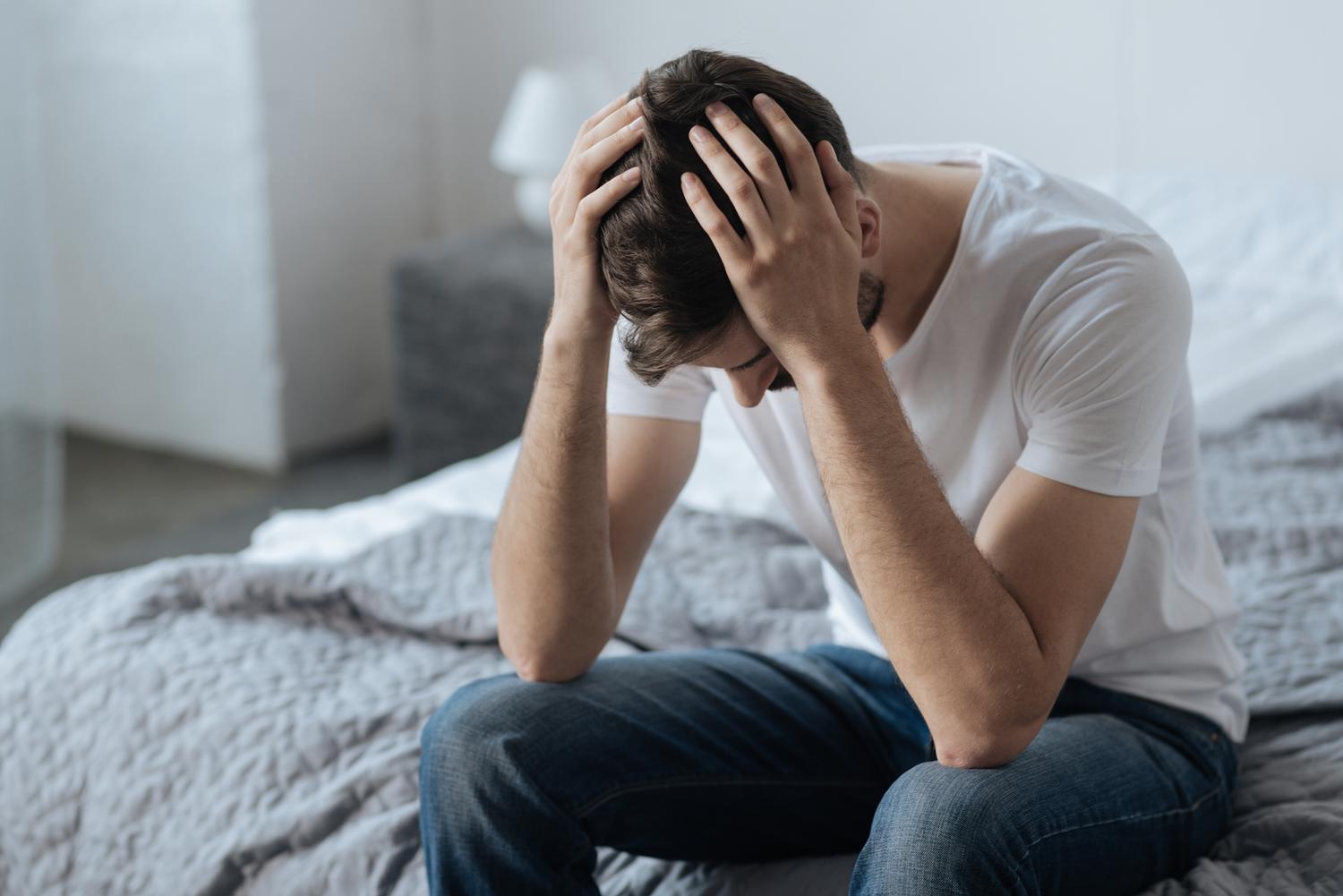Anxiety Medications: Types, Side Effects, and More
A guide to the best anxiety treatment plans
Key takeaways
- Treatment for anxiety frequently involves a combination of prescription medications and therapy, often cognitive-behavioral therapy (CBT).
- Medication used for anxiety includes antidepressants, anti-anxiety medication, buspirone, and more. Certain drugs may be prescribed off-label as treatment.
- In addition to medication and therapy, lifestyle changes can help manage anxiety symptoms.
Anxiety disorders are a group of mental health conditions that cause intense and persistent feelings of worry. If they are left untreated, these conditions can affect your daily life and your personal relationships. Treatment for anxiety involves a combination of prescription medication and psychotherapy (also known as talk therapy).
This article will explore the different types of anxiety disorders and their symptoms. It will also detail the best treatment options and prevention tips to manage mental health.
What medications are available to treat anxiety disorders?
The treatment of anxiety frequently involves both medication and therapy, often a type of therapy called cognitive-behavioral therapy (CBT). Therapy helps the patient address the root of their anxiety. Medication reduces symptoms caused by anxiety disorders.
There are several different types of medication used to treat anxiety.
Antidepressants
Antidepressants are commonly used to treat depression. They are also among the most effective treatments for anxiety. As such, these are often the first treatment options for anxiety (along with therapy).
The three most common forms of antidepressants used for anxiety are:
- Selective serotonin reuptake inhibitors (SSRIs)
- Serotonin-norepinephrine reuptake inhibitors (SNRIs)
- Tricyclic antidepressants (TCAs)
These drugs balance neurotransmitter levels in the brain. It may take a week or two before you start to notice the effects of antidepressant medication.
SSRIs are particularly effective in treating anxiety and have the lowest risk of side effects.
Common SSRIs:
- Citalopram (Celexa)
- Escitalopram (Lexapro)
- Fluoxetine (Prozac)
- Sertraline (Zoloft)
- Paroxetine (Paxil)
Common SNRIs:
- Desvenlafaxine (Khedezla)
- Duloxetine DR (Cymbalta)
- Venlafaxine (Effexor)
- Venlafaxine ER (Effexor ER)
Common TCAs:
- Amitriptyline (Endep)
- Nortriptyline (Pamelor)
- Clomipramine
- Doxepin (Silenor)
Common side effects of antidepressant medication include:
- Weight gain
- Sexual dysfunction
- Nausea
- Vomiting
- Diarrhea
- Constipation
- Drowsiness
- Dry mouth
- Blurred vision
Anti-anxiety medication
The most common form of anti-anxiety medication is a class of drugs known as benzodiazepines. Benzodiazepines slow down activity in the nervous system, which reduces symptoms of anxiety.
Common benzodiazepines:
- Alprazolam (Xanax)
- Clonazepam (Klonopin)
- Diazepam (Valium)
- Lorazepam (Ativan)
Common side effects of benzodiazepine drugs include:
- Slow or shallow breathing
- Difficulty breathing
- Drowsiness
- Headaches
- Nausea and vomiting
- Diarrhea
- Tremors
Benzodiazepines are used for the short-term treatment of anxiety. They are controlled substances that can cause physical dependence and addiction. You cannot get a prescription for benzodiazepines online. This is true for telehealth platforms like Sesame.
Buspirone
Buspirone(also available under the brand name Buspar) is a newer type of anxiety medication. It works by affecting neurotransmitters in the brain. Buspirone is also prescribed off-label for substance abuse, obsessive-compulsive disorder (OCD), and depression.
Providers often choose to prescribe buspirone because it has a lower risk of side effects than other drugs.
Common side effects of buspirone include:
- Dizziness
- Nausea
- Headache
- Nervousness or restlessness
- Lightheadedness
- Drowsiness
- Trouble sleeping (insomnia)
Hydroxyzine
Hydroxyzineis an antihistamine medication primarily used to treat allergy symptoms. Researchers still aren’t totally sure how hydroxyzine works to treat anxiety. It is thought to boost serotonin levels in the brain. Its antihistamine effect also can make you sleepy and relaxed. Common side effects of hydroxyzine include:
- Dry mouth
- Headaches
- Drowsiness
Talk to your provider about the risks and benefits of hydroxyzine before starting treatment with this medication.
Before taking any prescription medication, tell your provider about the medications or supplements you take. You should also tell them about any medical or mental health conditions you have before starting treatment.
Off-label prescriptions
In addition to the medications listed above, there are several types of drugs that are prescribed off-label as a treatment for anxiety. These include:
Beta-blockers
Beta-blockers are FDA-approved for the treatment of high blood pressure and heart problems. However, healthcare providers may prescribe these drugs for their off-label use. They use them to treat the physical symptoms of anxiety, including:
- Increased heart rate
- Hyperventilation (rapid breathing)
- Sweating and trembling
- Insomnia (difficulty falling asleep or staying asleep)
- Gastrointestinal issues (like stomach aces)
- Muscle pain
- Weakness or fatigue
Propranolol (Inderal), in particular, has been used to treat anxiety symptoms. However, there is still a lack of formal testing to prove that propranolol is effective in treating anxiety.
Common side effects of propranolol include:
- Dizziness
- Tiredness
- Nausea and vomiting
- Diarrhea
- Constipation
- Insomnia or vivid dreams
Gabapentin
Gabapentin is primarily used for the treatment of epilepsy and pain. It is in a class of drugs known as anticonvulsants, which help to control seizures brought on by epilepsy. It is also sometimes prescribed for its off-label use in treating anxiety.
Common side effects of gabapentin include:
- Drowsiness
- Dizziness
- Headaches
- Tremors
- Blurred vision
- Increased appetite or weight gain
There are no randomized controlled trials of gabapentin’s efficacy in treating anxiety. Talk to your provider about the benefits and risks of gabapentin before starting treatment with this medication.
What is the most effective anxiety medication?
According to an analysis of more than 234 controlled studies and over 37,000 patients, there are 4 types of medications that are effective at treating anxiety: SNRIs, benzodiazepines, SSRIs, and tricyclic antidepressants.
The study found that the most effective drugs at treating anxiety (ranked from most effective to least) were:
- SNRIs
- Benzodiazepines
- SSRIs
- Tricyclic antidepressants
Your mental health care provider will work with you to determine the best anxiety treatment plan for you. Even though a drug may be the “most effective,” that doesn’t mean it’s the best option for you. The decision to prescribe medication (and which medication to prescribe) will vary depending on:
- Age
- Health history
- Personal preferences
- Previous experience with medication
- Potential side effects
After you start treatment, your provider may monitor how well the medication is working and check for side effects. If you have questions or concerns regarding your prescription, reach out to your provider.
Medication and therapy are highly effective when used together. In addition, there are several lifestyle changes you can make to help anxiety symptoms.
What else can I do to treat anxiety?
There are no over-the-counter (OTC) drugs for anxiety. But, there are many self-care strategies to manage anxiety symptoms. For example:
Exercise regularly: Regular exercise reduces stress hormones and increases endorphin production. This can improve your mood and relieve stress.
Quit nicotine and caffeine: Cutting out caffeinated beverages and quitting smoking can help eliminate chemicals that cause anxiety.
Use relaxation techniques: Therapies such as yoga, meditation, and Tai Chi can help relieve stress and reduce symptoms of anxiety.
Get enough sleep: Anxiety can lead to feelings of exhaustion and fatigue. Set up healthy bedtime habits that will help you relax, fall asleep, and stay asleep.
How Sesame can help
Anxiety can seriously affect your life if you leave it untreated. If you are experiencing the symptoms of anxiety or have been diagnosed with anxiety and want to talk to a provider about your condition, book an online anxiety appointment on Sesame to connect with one right away. Providers on Sesame can address your concerns, answer your questions, and prescribe medication when appropriate. Don’t let anxiety rule you. Talk to a provider to start a treatment plan today.









